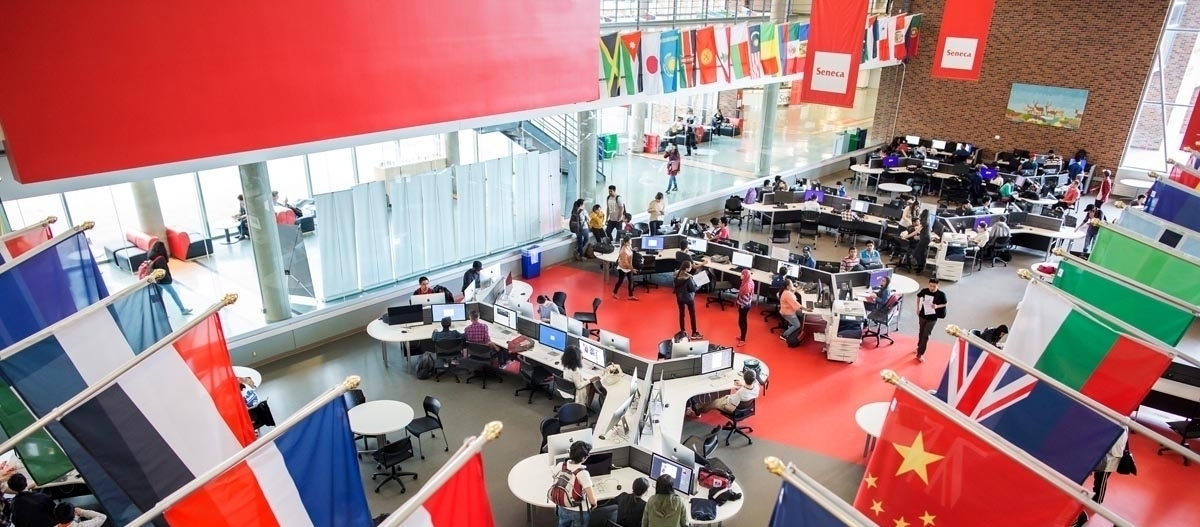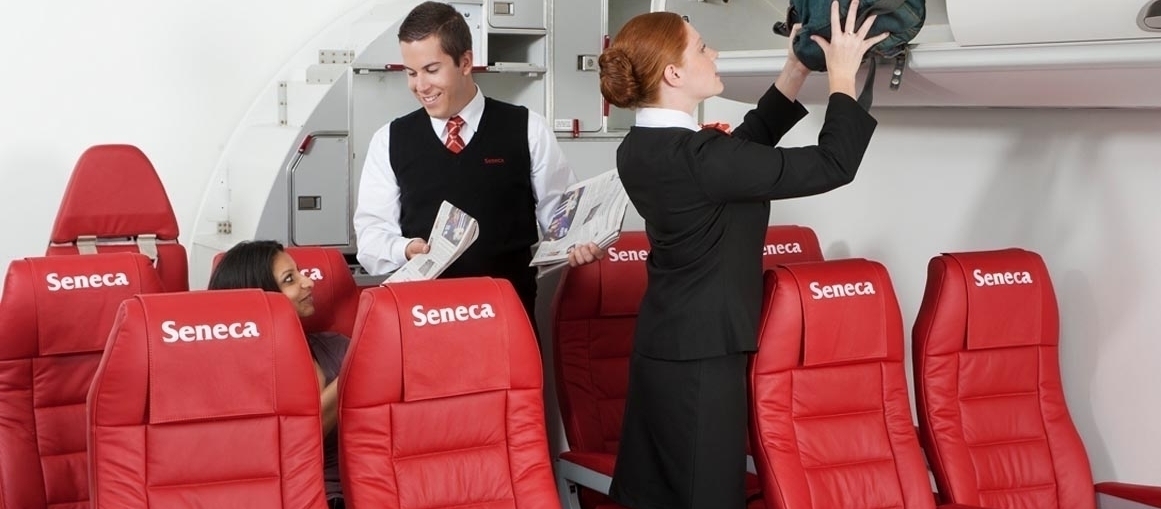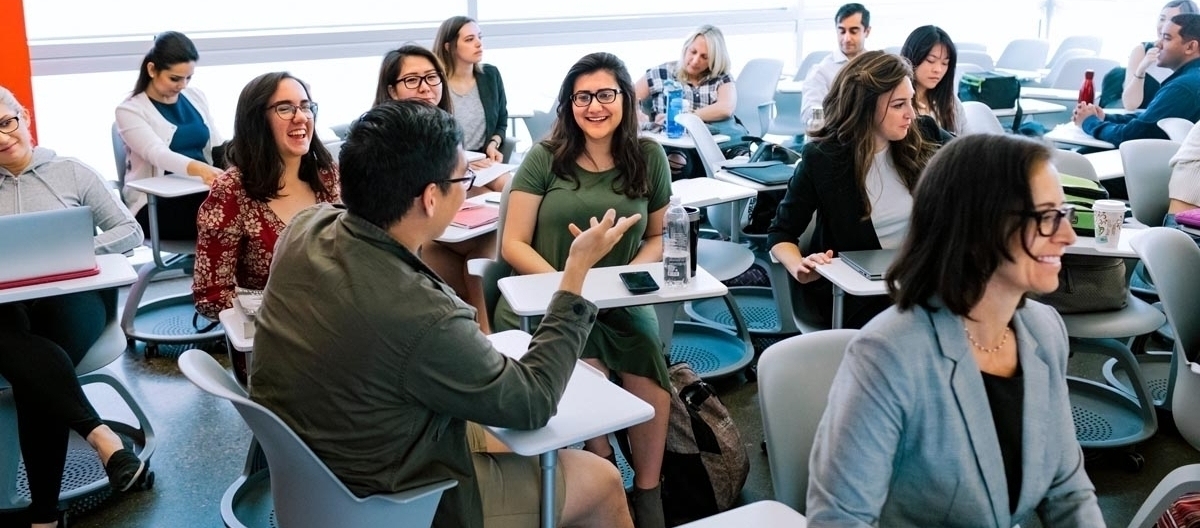Can I complete the January 2024 or May 2024 Term from outside of Canada?
If you started your program after Sept. 1, 2022, you must complete at least 50 per cent of your program in Canada and meet all other PGWP requirements to be eligible for a post-graduation work permit (PGWP).
It is highly recommended that you select and attend in-class course options when available. These include hybrid, flexible and in-person.
Time spent studying outside of Canada after Sept. 1, 2024 will be deducted from the length of your PGWP.
Please confirm your program delivery format for the January 2024 Term. Program delivery information for each program is available on our program pages. Check the PGWP eligibility updates for more details on IRCC requirements before confirming your schedule.
If you were enrolled in a program in Mar. 2020 or started a program between Mar. 2020 and Aug. 31, 2022, please review PGWP eligibility requirements for studying from outside Canada.
If you have questions around PGWP eligibility, connect with an immigration specialist by contacting theservicehub@senecapolytechnic.ca with your question.
Can I graduate from outside of Canada and still be eligible for a PGWP?
Students who graduate from outside of Canada and meet the eligibility requirements of the temporary PGWP policy changes do not need to hold or have held a valid study permit within 180 days of applying for the PGWP. In order to be eligible to apply outside of Canada, graduates must either have a study permit or have received a study permit approval, and must still apply within 180 days of receiving written notification of program completion from Seneca.
Please note: if you graduate from your program from abroad, you will need to receive PGWP approval before travelling to Canada. Visit the Government of Canada website for more information on requirements to travel to Canada.
I am an international student already in Canada. Does studying online affect my PGWP eligibility?
If your courses were moved online due to the pandemic, the time you spend studying online from within Canada until Sept. 1, 2024, still counts toward the length of your PGWP.
When possible, select courses that have an in-class component (e.g. in-person, hybrid or flexible). If your courses are only available online, the time you spend studying in Canada will still count towards the length of your Post-Graduate Work Permit (PGWP) provided it accounts for no more than 50 per cent of your studies.
Check the PGWP eligibility updates for more details on IRCC requirements before confirming your schedule.
What is a bundled graduate certificate?
A bundled graduate certificate is when you complete two, one-year graduate certificate programs in consecutive years.
Does the government consider a bundled graduate certificate as a two-year program?
No, the Government of Canada considers bundled graduate certificates to be two, separate one-year programs for immigration and PGWP purposes — not a two-year program.
If I am in a bundled graduate certificate program, can I study outside Canada without negatively affecting my PGWP eligibility?
The Government of Canada has announced an extension to the policy changes for PGWP eligibility related to studying outside Canada. These temporary measures will be in effect until Sept. 1, 2024.
Under these temporary measures, how long you need to study in Canada to be eligible for a PGWP depends on when you start your program(s). Here are the details:
If you will begin your first or second graduate certificate in the January 2024 Term:
- You must complete at least 50 per cent of your program in Canada
- You need to be in Canada for the May 2024 Term
If you began your first or second graduate certificate program in the Fall 2023 Term:
- You must complete at least 50 per cent of your program in Canada
- You need to be in Canada for the Winter 2024 Term
- Any study time you complete abroad after Sept. 1, 2024 will be deducted from the length of your PGWP
- You must meet all the other PGWP requirements
Can I complete studies from outside of Canada without affecting my PGWP eligibility?
If you started your program after Sept. 1, 2022, you must complete at least 50 per cent of your program in Canada and meet all other PGWP requirements to be eligible for a post-graduation work permit (PGWP).
It is highly recommended that you select and attend in-class course options when available. These include hybrid, flexible and in-person.
Time spent studying outside of Canada after Sept. 1, 2024 will be deducted from the length of your PGWP.
Please confirm your program delivery format for the January 2024 Term. Program delivery information for each program is available on our program pages. Check the PGWP eligibility updates for more details on IRCC requirements before confirming your schedule.
If you were enrolled in a program in Mar. 2020 or started a program between Mar. 2020 and Aug. 31, 2022, please review PGWP eligibility requirements for studying from outside Canada
If you have questions around PGWP eligibility, connect with an immigration specialist by contacting theservicehub@senecapolytechnic.ca with your question
If I leave Canada during the holiday closure, study week, or to visit family for a short time, will that time be deducted from my PGWP?
Time away from Canada during the holiday closure, study week or non-academic terms (if your program has a scheduled break), would typically not be deducted from the length of your PGWP. Any time outside of Canada taken during your academic term, may pose a risk of the time being deducted from the length of your PGWP after Dec. 31, 2023. Check the PGWP eligibility updates for more details on IRCC requirements. If you have questions around PGWP eligibility, connect with an immigration specialist by contacting theservicehub@senecapolytechnic.ca with your question.



